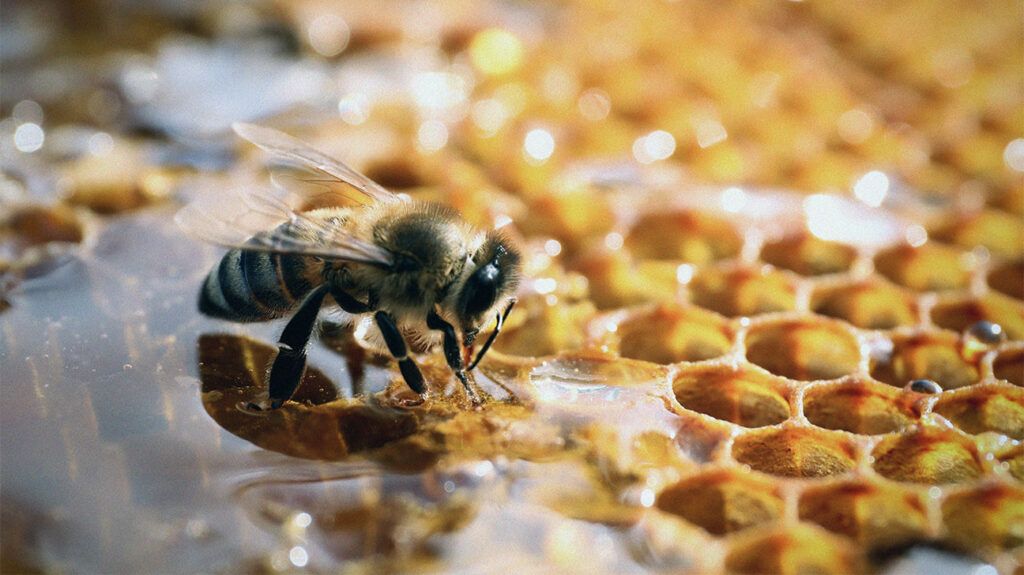People often consider honey to be healthier than sugar, but it depends on the use. Like sugar, honey is high in carbs, can raise blood sugar levels, and is high in calories.
Both honey and sugar add sweetness to meals and snacks. However, they have different tastes, textures, and nutritional profiles.
This article explores the benefits and disadvantages of both honey and sugar for health and diet.
Nutrition resources
For more science-backed resources on nutrition, visit our dedicated hub.

The
Healthcare professionals may also refer to sugars as simple carbohydrates.
According to the Centers for Disease Control and Prevention (CDC), types of sugars that manufacturers may add to foods and drinks
Both honey and sugar can contribute to weight gain if a person overuses them.
People have been using honey since ancient times as both a sweetener and for its medicinal properties.
Below are some of the health benefits associated with honey.
Nutritional content
Research indicates that honey
Dark honey may contain more antioxidants than light honey.
Typically, honey is less processed than refined sugar as manufacturers usually only pasteurize it before use. Raw honey is also edible.
Additionally, research indicates that honey is
Medicinal uses
Research into the medicinal uses of honey is ongoing. However, some potential uses include:
- Cough suppressant: Some research suggests that consuming honey may be a natural way to
ease an acute cough in children. However, the researchers also highlighted that further higher quality studies are necessary to understand its efficacy. - Allergy relief: A 2020 review of research found that some studies indicate that honey
may be an effective anti-allergic agent. However, the authors of the review highlighted that there are gaps in research and more clinical studies into the topic are needed. - Wound healing: A 2021 review of research suggests that medical grade honey
could be a potential alternative to antibiotics or complementary therapy for treating locally infected wounds.
Some of the disadvantages associated with honey include:
- High calorie count: One tablespoon of honey contains
about 64 calories , which is slightly higher than sugar ataround 50 calories per tablespoon. - Risk of infant botulism: The World Health Organization (WHO) advises that caregivers should not give honey to infants
younger than 12 months old due to the risk of infant botulism, a rare but potentially life-threatening disease. - Risk of other health conditions: As honey contains sugar, consuming too much of it
may increase a person’s risk of developing obesity, heart disease, and type 2 diabetes.
Table sugar comes from sugarcane, sugar beet, and other plants. Although it is derived from natural substances, sugar needs a lot of processing before it becomes the finalized product that people consume.
Glucose and fructose bond to form table sugar, which has no added nutrients. However, brown sugar, which is a blend of white sugar and molasses,
Sugar contains
Additionally, sugar is typically low cost, easily accessible, and has a long shelf life. People may also find it makes many foods more palatable.
Some disadvantages associated with sugar consumption include:
- High calorie count: While sugar contains
less calories per tablespoon than honey, it is still a high calorie substance. - Risk of certain health conditions: Consuming too much sugar
can increase a person’s risk of developing type 2 diabetes, obesity, and heart disease. - Tooth cavities: According to the WHO, dietary sugar
contributes to the development of dental caries, or cavities. - Changes in gut bacteria: Research indicates that a high sugar diet
may disrupt gut bacteria diversity, which may cause a range of health effects, such as increased inflammation in the body.
The American Heart Association suggests the
- Cut portions in half: Use a half spoon of sugar in drinks and on cereals instead of a full spoon.
- Reduce sugar in baking by one-third: This reduces intake without having a big impact on flavor or texture.
- Use extracts or spices: Extracts such as almond or vanilla can provide a sweet flavor to smoothies or baked goods without increasing sugar intake. Ginger, cinnamon, and nutmeg are examples of spices people use in baking.
- Substitute unsweetened applesauce or mashed banana: These natural fruit purees can be substituted for sugar in equal amounts in baking and other recipes.
- Replace with fruit: Fresh berries, bananas, mango, and other fruits can add sweetness to food. People may also use fruit canned in water, ideally they should avoid using fruit canned in syrup.
- Choose foods with low amounts of added sugar: People can look at the nutritional labels on food to find out how much added sugar they contain
- Limit non-nutritive sweeteners:
Examples include aspartame, saccharin, and sucralose. People often substitute sugar for these sweeteners when they are trying to lose weight. However, as they are low in calories a person may start to eat them in higher quantities, having the opposite effect.
People can apply the same tips above if they wish to reduce how much honey the consume.
People can consume too much of both honey and sugar. The risks of overconsumption are the same for both, they include increased risk of certain health conditions, like obesity, heart disease, and type 2 diabetes.
A person should speak with a healthcare professional if they are concerned about their honey or sugar intake. A doctor can recommend whether a person needs to limit their intake or make any other dietary changes.
